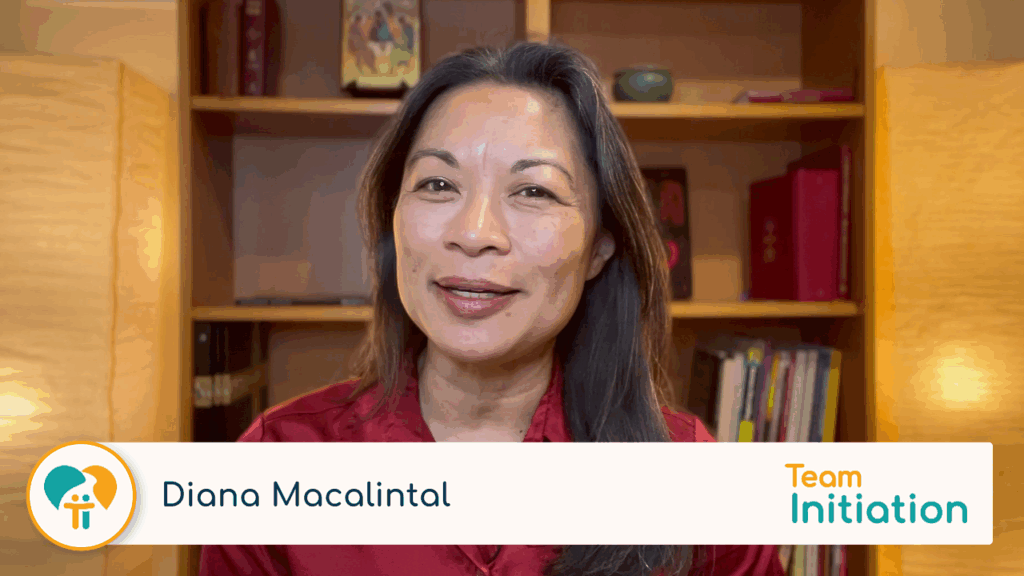 I know a lot of catechists who approach their ministry with all the zeal of a foreign missionary, especially when it comes to the RCIA. That was the feeling we all had in our RCIA team when I first joined them 21 years ago. Here was our chance to bring Christ to those who had never had any experience with our faith. This missionary zeal not only drove our team, but it drove our entire approach to the process. Back then, like many parishes, we followed a traditional academic model where everyone started at the same time, and finished at the same time. The problem with this missionary zeal however, is that we left out one very important part of our mission: The needs of the seekers themselves.
I know a lot of catechists who approach their ministry with all the zeal of a foreign missionary, especially when it comes to the RCIA. That was the feeling we all had in our RCIA team when I first joined them 21 years ago. Here was our chance to bring Christ to those who had never had any experience with our faith. This missionary zeal not only drove our team, but it drove our entire approach to the process. Back then, like many parishes, we followed a traditional academic model where everyone started at the same time, and finished at the same time. The problem with this missionary zeal however, is that we left out one very important part of our mission: The needs of the seekers themselves.
Know your audience
One of the common mistakes we made back then was that we looked at our catechumens like they were a “blank slate.” And even if they had some experience of church, we were eager to put that aside in favor of what it was that we had to teach them. The reality, however, (both back then and today) is that our seekers are anything but a blank slate. We too easily forget that the “A” in RICA is for “adults,” which means they come with a lifetime of experience (and yes, sometimes a little baggage). This isn’t something to ignore or put aside. Rather, it is something we need to embrace. We need to get to know them as individuals, and through that learn what it is they are seeking and how we can guide them to their goals.
If there’s one thing I’ve learned as an adult catechists, it’s that nothing is what you expect. Over the years I’ve observed that most seekers, the vast majority of them, already have sense of God and some knowledge of our Catholic faith. In fact, it’s that experience that has helped lead them to our door. We as catechists have to respect that and work with that. Discussion topics like “who is God” or “who is Jesus” can discount their knowledge and experience, especially if they’ve had some previous religious formation, and especially if they’ve had some Christian formation. Add to this the fact we’re living in the information age, and we see that many seekers already have a lot of knowledge about our faith. That means we should be taking an approach to catechesis that goes beyond just knowledge of our faith to one that also brings them understanding,
What supports growth of understanding in RCIA?
Belief (or acceptance) doesn’t come from knowledge. It comes from understanding. For example: Catholics believe that in the Mass, the elements of bread and wine are consecrated into the Body and Blood of Christ. Now chances are, many, if not most of your adult non-Catholic seekers know this to be one of our beliefs. It’s not something we necessarily need to teach them. What we do need to do, however, is to help them to understand why we believe what we believe. Less of the “what” and more of the “why,” because it is through understanding that we come to belief.
Over the years I’ve come to develop what I call the “pyramid of acceptance” or the “pyramid of belief.” Knowledge is the foundation. Belief (or acceptance) is the peak. In-between these two layers is the layer of “understanding,” which needs to form the bulk of our adult catechesis. Helping others to understand why we believe what we believe. But as with everything, this can’t just be with words. It must also flow from our actions, as catechists, as parishioners, and as church.
Speak to the condition in your RCIA
Now in all fairness, there are a lot of different pyramid models out there (the most famous perhaps being Maslow’s hierarchy of needs). I can’t say for sure yet if this idea of mine is original, but as I’ve been developing it over the last year or so I’ve been able to see more details as to how it works and how these ideas can be applied to catechesis on a broader level. I look forward to exploring more of the details of this model in my next article, but the key take-a-way is to ask ourselves what’s more important in our catechesis? Is it to teach them all we know about the Catholic faith? Or is it to help understand why we believe what we believe?
A scripture professor of mine once taught us an old Mennonite phrase: God speaks to our condition. Put another way, God meets us where we are at — physically, mentally, and spiritually. Of our job as catechists is to facilitate that meeting, but if we don’t know where our seekers are at, then we become very poor guides for them. Knowledge of our faith is important, but I’ve come to realize that many of them tend to be much further down path. We need to rise up and meet them where they are at and helping them navigate the level of understanding will better help them to accept and believe.
Your Turn
How have you helped your catechumens seek understanding, not just knowledge, in your RCIA? What has helped drive their desire to grow in belief? Share your thoughts in the comments below.


















I truly support this stance. It certainly goes beyond information -giving Crucial to RCIA is the formative aspect. Helping the catechumens understand the why’s and wherefore of a particular teaching makes RCIA more meaningful and appreciated.
One of the challenges is that we tend to look to a “perfect resource” that we can proceed step by step through the tenets on the faith, rather than look to our own understanding and connect with the understanding of the seekers . So why do we do the academic model? Because most catechisms in my opinion rely on their own experience of what it means to “ learn” – an acedemic model designed for children and youth, rather than an adult learning model.
Excited to hear more about your pyramid of understanding, Nick!
Mike
Hi Michael. Thanks for your comment. This is one of John McGlynn’s posts. He contributes something about once a month. (The author names are at the top of each post.) I’m excited to hear more about the pyramid of understanding also!